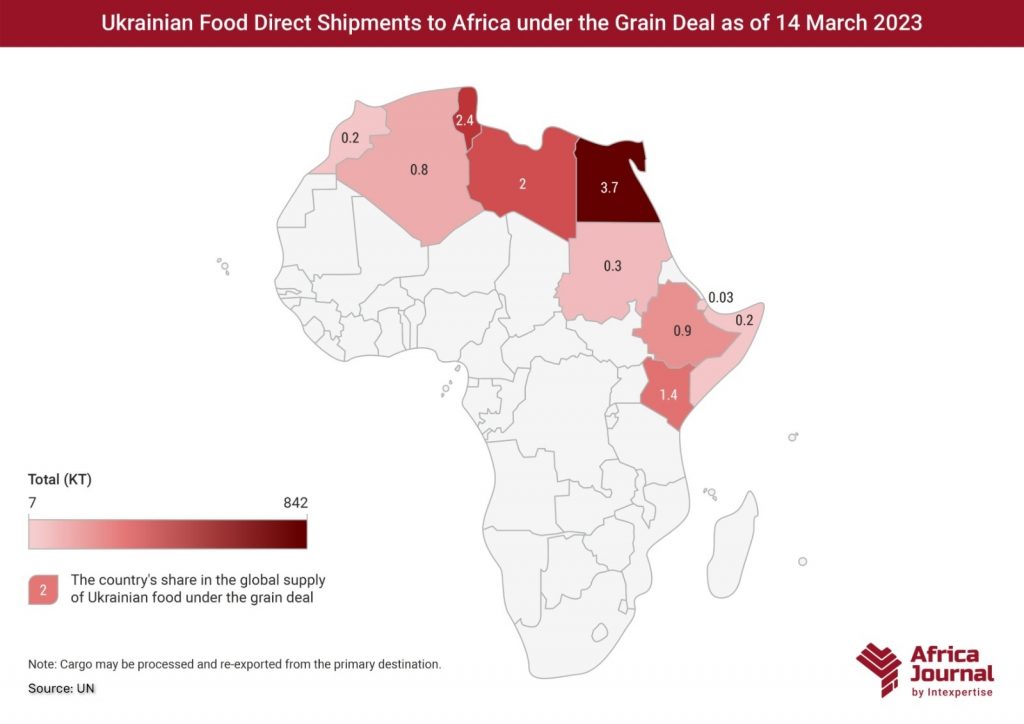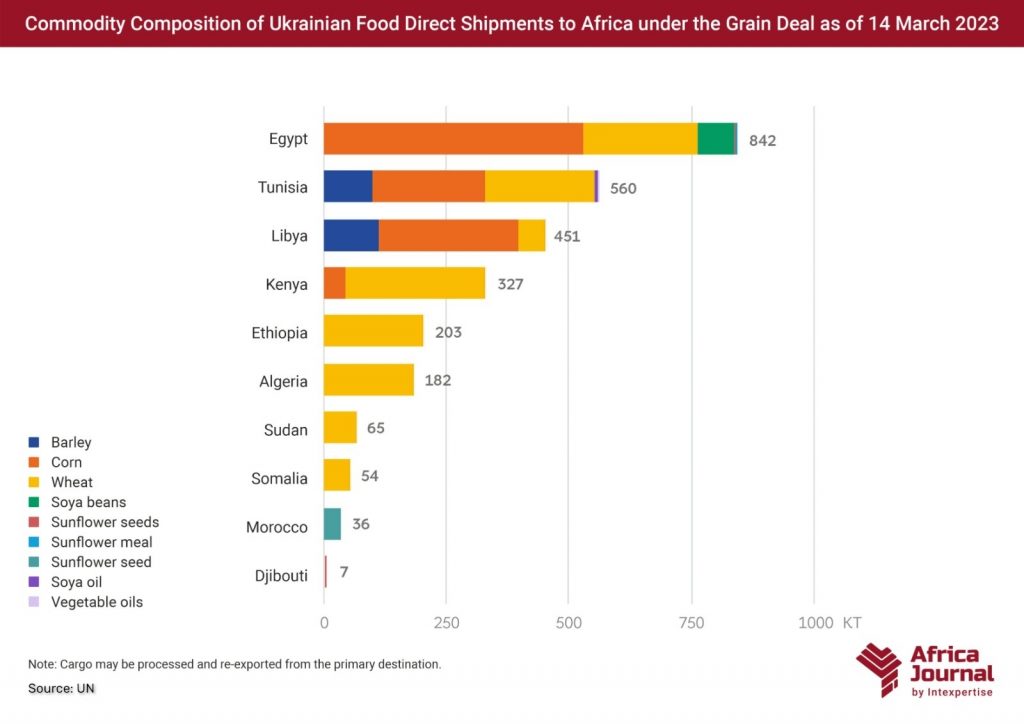The grain export deal, which expires on March 18, was extended for 60 days on March 14.
Andrey Maslov, director of HSE Centre for African Studies, commented on the impact on African countries and highlighted its benefits for Russia in the interview for Mezhdunarodnoe obozrenie, a weekly Russian TV programme.
The deal consists of 2 parts: the security guarantees that Russia has provided for the safe export of grain and fertilisers from three Ukrainian ports (also known as the Black Sea Grain Initiative, BSGI), and the memorandum of understanding between Russia and the UN, in accordance with which the UN has pledged to provide assistance in ensuring resilience of the Russian food exports to unilateral sanctions.
«The second part of this deal is crucial for us. It is important that our partners, friendly countries, can receive stable supplies from Russia. Yet, problems remain unsolved».
These difficulties must be addressed through the UN mechanisms, as well as through partnership with the African Union and other countries in order to uphold those guarantees at the institutional level as well, to build an infrastructure that will be immune to unilateral actions.
While the Black Sea Initiative is justified by the needs of the developing and least developed countries dependent heavily on grain imports, 60% of grain supplies under the BSGI were exported to 5 countries: China (5 million tons), Spain (4.1), Turkey (2.7), Italy (1.8), and the Netherland (1.5), whereas African countries have received 2726 thousand tons, accounting for only 12% of total shipments (based on the UN Black Sea Grain Initiative Joint Coordination Centre data). This includes the least developed countries – Ethiopia (0.88% of total shipments under the deal), Djibouti (0.03%), Somalia (0.23%), Sudan (0.28%).

Nonetheless, the deal had a positive impact on the global grain market and resulted in stabilisation of prices according to the Food and Agriculture Organization.
«It doesn’t matter whether Ukrainian corn gets directly to the table of an Algerian or a Nigerian. The price on the international market is what matters».
However, unfavourable exchange rates diminish the advantages of international price reduction, and therefore some countries cannot benefit from it due to the national currency depreciation. In Egypt, South Sudan, and Ghana wheat prices increased by almost 10% compared to last year, according to the UNCTAD report.
Wheat accounts for almost half of African imports under the BSGI – 47.6%. It is followed by corn with 40%, barley – 7.7%, and soya beans – 2.7%. Along with grains, African countries import oil and fat products, namely, sunflower seed oil, sunflower meal, sunflower seeds, soya oil, and other vegetable oils. They account for 2% of imports under the grain deal.

Even though Russian food and fertiliser exports should not be subject to any sanctions, and the UN claims to be working on removing remaining constraints for their access to global markets, still, the unilateral restrictions in other areas such as banking, insurance, transport, etc. result in restraining Russian exports. Suppliers often are afraid to work with Russian banks.
Apart from indirect obstacles, the Ukrainian authorities do not allow to resume ammonia supplies via the Togliatti-Odessa pipeline for political reasons. Russian fertilisers donated to the developing countries remain blocked in the ports of the Baltic States and the Netherlands. Despite all hurdles, Russian grain exports saw a 15 % growth in 2022 in monetary value, according to Agroexport, Russian Federal Agency. On March 13, Egypt reported receiving the largest shipment of Russian wheat since 1986. Stable food supplies are of great importance for African countries that are highly sensitive to all market fluctuations. Food security is likely to become one of the key topics during the upcoming Second Russia-Africa Summit. More effort must be put into building grain storage facilities in Africa as well as into addressing humanitarian problems. And, both sides are interested in the expansion of exports. This includes not only grains but also fertilisers that are necessary for food production.
«The Deal is important for our friends. Africa accounts for 50% of all our political support at the UN and not only during voting. Africans positively perceive our willingness to accept their concerns, their needs. And we need to build relations with Africa based on a long-term perspective».
At the same time, Ukraine earned 7 billion dollars from exports under the Black Sea Grain Initiative last year, while receiving 60 billion of financial support from the West. Since Ukraine does not buy ammunition, weapons, its defence capability is not dependent on these export revenues.
The grain deal allows Russia to gain time for building an independent system that is resilient to unilateral sanctions, creation of a de-dollarised financial infrastructure using rubble, yuan, and other national currencies, a transportation insurance market independent of Western intermediaries, as well as of grain storage systems in the importing countries.
Despite the opinion, promoted by Ukrainian media, that Russia was compelled to open those ports, the Russian side does not call to pull out of it, and only insists on implementing the second part of the deal. On March 14, the grain deal was extended for 60 days on the same terms with the condition that all the promises made to the Russian side are to be fulfilled.
